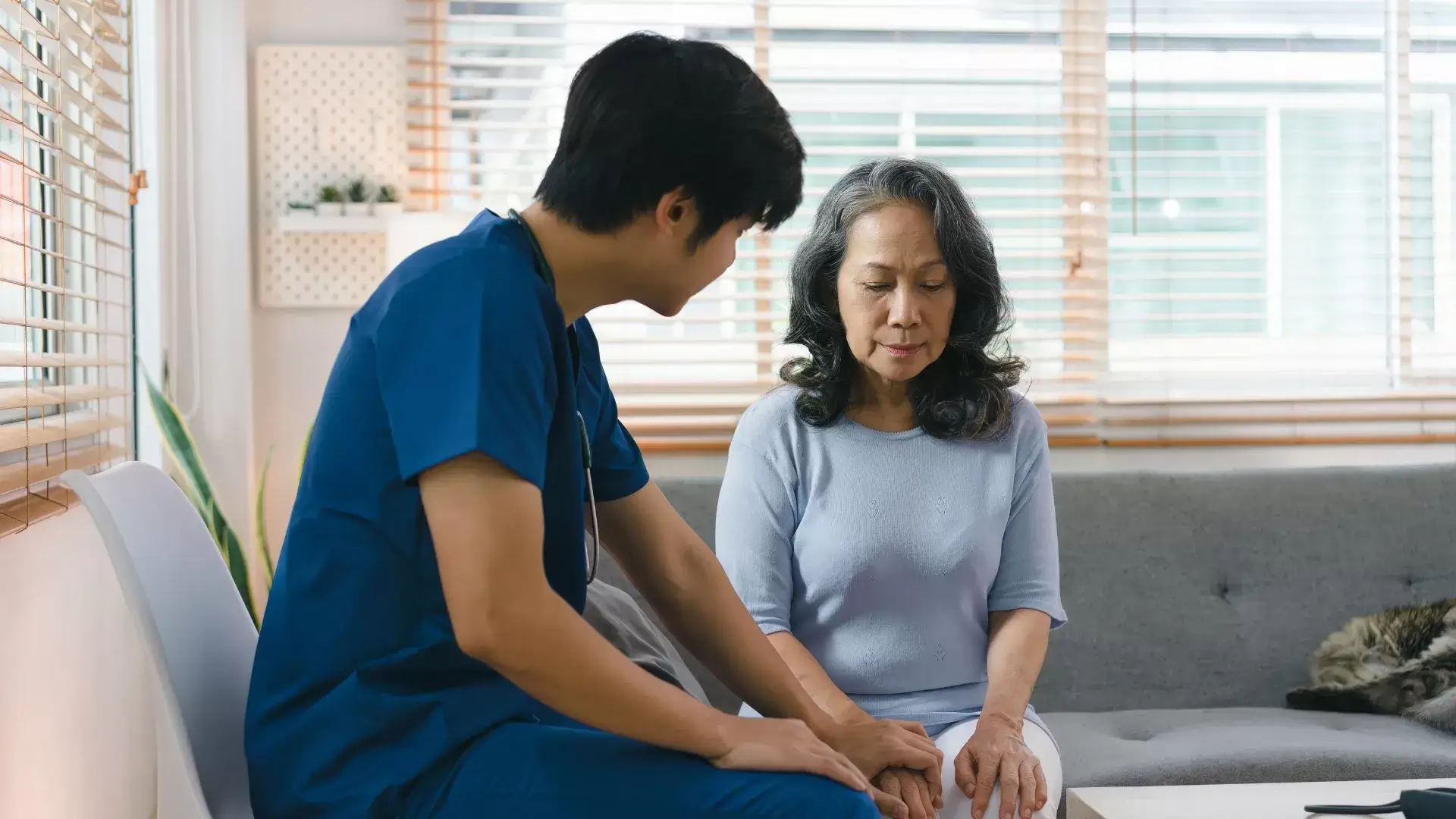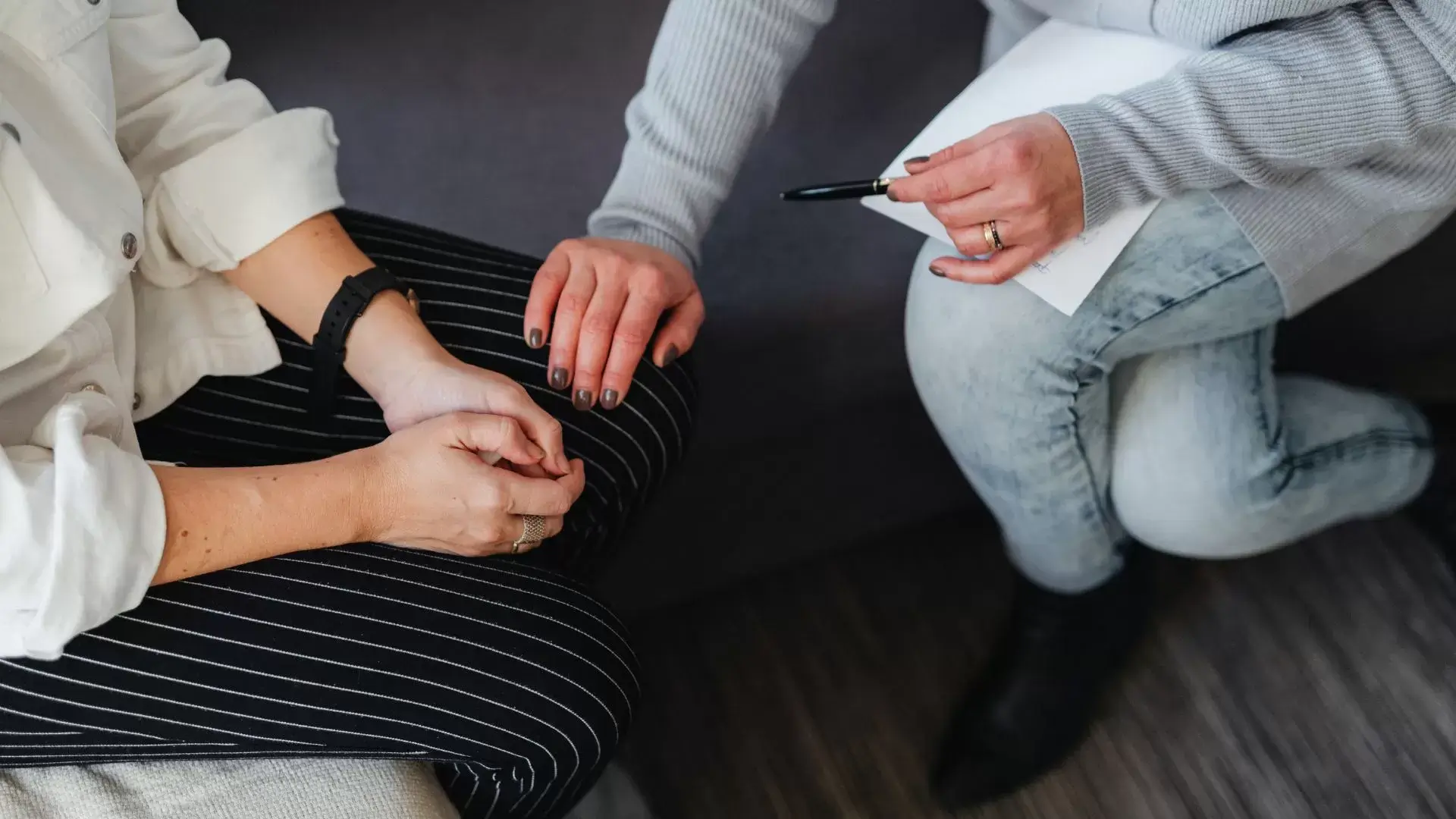Women's Mental Health Counselling Therapy for Paranoid Personality Disorder
- Home
- »
- Women’s Mental Health Counselling Therapy for Paranoid Personality Disorder
Women struggling with Paranoid Personality Disorder (PPD) often experience intense feelings of mistrust and anxiety that can affect their relationships and overall well-being. Counseling specifically tailored for women can provide a supportive environment, helping us address these challenges through trauma-informed care and group therapy. Techniques like Cognitive Behavioral Therapy (CBT) help us reshape negative thought patterns and manage anxiety effectively. By sharing our experiences within a compassionate community, we gain strength and resilience. There’s so much more to explore about how specialized therapy can empower us on our journey to emotional recovery and personal growth.

About Women’s Mental Health Counselling Therapy
Women’s mental health counselling therapy focuses on addressing the unique emotional and psychological challenges women face, helping us navigate life’s complexities with understanding and support. This specialized approach to mental health counseling is fundamental for fostering our emotional well-being, particularly when dealing with anxiety disorders, relationship issues, and stress management.
In psychotherapy for women, we often find that trauma-informed care plays a significant role. It recognizes the impact of past experiences on our current mental health, offering a safe space to process these feelings. Through this compassionate framework, we learn effective coping strategies that empower us to overcome challenges and enhance our resilience.
Emotional support is a crucial component of women’s mental health therapy. It encourages open discussions about our struggles, fostering connections that can reduce feelings of isolation. As we share our experiences, we also gain insights into the commonalities we face, reinforcing the understanding that we’re not alone in our journeys.
Ultimately, women’s mental health counselling therapy equips us with the tools we need to thrive, helping us cultivate healthier relationships with ourselves and others while prioritizing our emotional well-being. Together, we can embrace healing and growth.
Understanding Paranoid Personality Disorder (PPD) in Women
Understanding Paranoid Personality Disorder (PPD) in women requires us to recognize the pervasive mistrust and suspicion that can color their perceptions of others, often making everyday interactions feel threatening and overwhelming. This disorder can greatly impact women’s emotional health, leading to heightened anxiety and difficulties in forming and maintaining relationships.
In our journey towards understanding PPD, we must acknowledge the role that past trauma can play in shaping these feelings. For many women, experiences of trauma can exacerbate feelings of distrust, making it essential for us to approach the subject with sensitivity and compassion. Women’s mental health counselling therapy can be an important resource in this situation, providing a safe space for exploration and healing.
Psychotherapy can help women develop greater self-awareness and understanding of their emotions, which is fundamental for trauma recovery. Additionally, therapeutic interventions focused on stress reduction can empower women to manage their anxiety and improve their overall mental wellness. By fostering this understanding, we can better support women as they navigate the complexities of paranoid personality disorder and work towards healthier emotional health outcomes.

The Role of Women’s Mental Health Counseling in PPD Treatment
In addressing the challenges posed by paranoid personality disorder, effective counseling can play a transformative role in helping women rebuild trust and improve their emotional well-being. Women’s mental health support is essential, as it provides a safe space for exploring feelings of distrust and anxiety that often accompany PPD. Through specialized mental health therapy, we can address the underlying issues contributing to these feelings.
Cognitive behavioral therapy (CBT) and trauma therapy are particularly effective in helping women develop emotional resilience. These therapeutic approaches allow us to challenge and reframe negative thought patterns, fostering healthier coping mechanisms. Additionally, integrating depression treatment and anxiety counseling into our sessions can further enhance emotional recovery, helping women navigate the complexities of their experiences.
Women’s counseling services focus on creating an empowering environment where clients feel heard and understood. By building a trusting therapeutic relationship, we can encourage women to engage actively in their healing journey, leading to improved self-awareness and emotional stability. Ultimately, through compassionate and tailored counseling, we can help women with paranoid personality disorder reclaim their lives and foster a sense of hope and well-being.
Recognizing the Signs and Symptoms of PPD in Women
Recognizing the signs and symptoms of paranoid personality disorder (PPD) can be challenging, but it’s essential for women to identify these feelings early on to seek the support they deserve. Many of us may struggle with heightened anxiety, a pervasive mistrust of others, and a sense of emotional detachment. These symptoms can often coexist with depression and postpartum depression, making it essential to pay attention to our mental health.
We might notice that our self-esteem is affected, leading to feelings of inadequacy and isolation. Emotional trauma from past experiences can manifest as a constant fear of betrayal or rejection, complicating our relationships and overall psychological well-being. It’s critical to recognize these patterns, as they can hinder our coping mechanisms and hinder effective trauma recovery.
Cognitive Behavioral Therapy (CBT) for PPD Recovery
Many women find that Cognitive Behavioral Therapy (CBT) offers valuable tools for addressing the challenges of postpartum depression (PPD) and can help reshape negative thought patterns that arise from feelings of inadequacy and mistrust. In our sessions, we learn how to identify these thoughts and replace them with healthier, more constructive beliefs.
CBT enhances our anxiety management skills, allowing us to confront fears and uncertainties more effectively. Through emotional regulation techniques, we gain better control over our feelings, fostering resilience and promoting personal growth. This approach not only aids in trauma healing but also helps us build a stronger sense of self-worth.
Incorporating mindfulness-based therapy into our practice further enriches the process, encouraging us to remain present and engaged with our thoughts and emotions. By utilizing these mental health resources, we can navigate the complexities of PPD together, finding hope and healing along the way.
Ultimately, embracing CBT empowers us to rewrite our narratives, paving the way for a brighter future. We’re not alone in this journey, and with the right support, we can thrive despite the challenges we face.
Trauma-Informed Care for Women with Paranoid Personality Disorder
Trauma-informed care is essential for women traversing the complexities of paranoid personality disorder, as it fosters a safe environment that acknowledges and addresses past traumas while promoting healing and understanding. By recognizing how trauma influences our feelings of paranoia, we can begin to navigate our emotional healing more effectively.
Incorporating trauma-informed approaches into psychological therapy and behavioral therapy allows us to explore our experiences without fear of judgment. Relationship counseling and support groups can further enhance our journey, offering spaces for shared experiences and validation. These environments empower us to face our challenges together, fostering a sense of belonging that can be significant for women’s mental health.
Additionally, self-help strategies can play an important role in our recovery. Techniques such as mindfulness, journaling, or art therapy not only facilitate emotional expression but also help us regain a sense of control over our lives. Ultimately, embracing trauma-informed care equips us with tools to manage paranoia and promotes resilience, leading to a healthier, more empowered version of ourselves. By working together, we can transform our experiences into sources of strength and connection.

Managing Anxiety, Stress, and Emotional Distress in PPD
As we maneuver through the complexities of paranoid personality disorder, managing anxiety, stress, and emotional distress becomes essential for our overall well-being and recovery. We often face unique identity issues that can contribute to heightened anxiety, making it vital to seek out effective stress relief strategies. Engaging in counseling for women can provide a supportive environment where we can address these challenges in a safe space.
Mindfulness practices are particularly beneficial in our emotional trauma recovery process. By learning to focus on the present moment, we can gradually reduce anxiety and promote mood stabilization. Additionally, holistic therapy approaches that incorporate various techniques—such as art therapy or yoga—can enhance our mental health care journey.
Participating in women’s support groups also allows us to connect with others who understand our experiences, offering a sense of community that can alleviate feelings of isolation. Together, we can explore coping mechanisms that resonate with us and share tips for managing stress effectively. By prioritizing our mental health and utilizing these resources, we can foster resilience and improve our quality of life while maneuvering through the complexities of PPD.
Enhancing Emotional Regulation and Building Resilience
Enhancing our emotional regulation and building resilience are crucial steps in traversing the challenges we face, allowing us to respond to life’s stressors with greater confidence and stability. We often encounter trauma and mood disorders that can disrupt our emotional intimacy and well-being. By focusing on self-care strategies, we can nurture our mental health and foster resilience.
Mindfulness meditation is a powerful tool we can incorporate into our daily routines, helping us stay grounded and present in the moment. This practice encourages us to acknowledge our feelings without judgment, promoting emotional regulation. Setting healthy boundaries is also essential; it empowers us to protect our emotional space and prioritize our needs.
Family counseling can be beneficial, offering support while we navigate our recovery journey. Together, we can strengthen our relationships and foster an environment conducive to healing. As we embrace women’s empowerment, we recognize that our stories matter, and we can learn from each other.
Ultimately, by enhancing emotional regulation and building resilience, we become equipped to face life’s challenges, paving the way for a healthier, more fulfilling future. Together, let’s support each other on this transformative journey.
Addressing Relationship Challenges Associated with PPD
Steering the relationship challenges that come with postpartum depression (PPD) can feel overwhelming, but together we can find ways to strengthen our connections and foster understanding. Maneuvering these complexities often requires us to confront the impact of paranoid personality disorder, which can heighten feelings of mistrust and isolation. In this journey, therapy and counseling play vital roles, offering us safe spaces to explore our emotions and improve our relationships.
Engaging in gender-specific therapy allows us to address unique experiences that women face during life changes, particularly after childbirth. Through mental health advocacy, we can empower ourselves and each other, recognizing that seeking help is a sign of strength. Grief counseling can also be beneficial, as it helps us process the myriad of emotions tied to our experiences.
Family Counseling and Support for Women with PPD
Steering through the complexities of postpartum depression (PPD) often requires not just individual support, but also the involvement of family counseling to foster understanding and healing within our families. Family therapy can be a cornerstone for enhancing our collective wellness, addressing not only PPD but also co-occurring disorders like PTSD and addiction issues that may arise during this challenging time.
By engaging in depression counseling, we can create an environment where everyone feels heard, reducing misunderstandings and resentment. This process can also include anger management strategies, helping us navigate our emotions in healthier ways. For those grappling with addiction, family support is essential in addiction recovery and treatment, reinforcing our commitment to maternal health and the well-being of our children.
Ultimately, family counseling empowers us as women, strengthening our bonds and promoting a nurturing atmosphere. It’s about recognizing that we’re not alone in this journey; together, we can learn, heal, and grow. By prioritizing family support, we foster resilience and a sense of community that uplifts us all.
Overcoming Social Isolation and Building Healthy Connections
Often, we find ourselves feeling isolated during challenging times, but building healthy connections can be an important step toward overcoming that loneliness. As women, it’s vital to recognize the power of support networks in our journey. Engaging in marriage counseling or participating in recovery programs not only fosters understanding but also encourages women’s empowerment.
When we connect with others who share similar experiences, we can combat impulsivity and develop self-control. By forming these relationships, we create a safety net that helps manage behavioral addiction and promotes addiction management strategies. We can learn from each other’s stories and share coping mechanisms that work.
Overcoming social isolation often starts with small steps, like reaching out to a trusted friend or joining a local support group. These connections can help us feel understood and valued, alleviating feelings of loneliness. Remember, we’re not alone in facing these challenges. Together, we can cultivate environments that nurture our mental well-being and empower each other to thrive. Let’s embrace the journey of building healthy connections, as it will lead us toward a more fulfilling and connected life.
Holistic and Wellness-Based Approaches to PPD Therapy
Exploring holistic and wellness-based approaches to postpartum depression (PPD) can provide us with valuable tools for healing and self-care during this challenging time. By embracing holistic approaches, we can address not just the symptoms of PPD but also the underlying factors affecting our perinatal and reproductive mental health.
Incorporating practices like mindfulness, yoga, and nutrition can enhance our body image and help mitigate the risk of eating disorders. These strategies empower us to reconnect with our bodies, fostering a sense of acceptance and self-love.
Additionally, adopting wellness-based approaches encourages us to find a healthy work-life balance, which is essential in preventing burnout. We can prioritize self-care, ensuring that we’re not just surviving but thriving. Gender-focused therapy can also be beneficial, as it acknowledges the unique challenges women face, providing tailored support that resonates with our experiences.
Together, these approaches not only help alleviate the effects of PPD but also strengthen our resilience and promote women’s empowerment. By nurturing ourselves holistically, we create a foundation for lasting healing and well-being.
Managing Co-Occurring Conditions: Anxiety, Depression, and Mood Disorders
Managing co-occurring conditions like anxiety, depression, and mood disorders can feel overwhelming, but recognizing that we’re not alone in this struggle is the first step towards finding effective support and healing. We often face challenges related to hormonal balance, which can greatly impact our mental health. By empowering ourselves and each other, we can foster resilience and reduce feelings of shame and guilt associated with these conditions.
Understanding the interplay between our emotional and sexual health is essential. We might find that addressing these aspects can improve our overall well-being. Engaging in addiction education can also be important, as it helps us recognize patterns that may lead to relapse. Through education, we can learn effective relapse prevention strategies, allowing us to navigate our emotions more effectively.
As we share our experiences and support one another, we create a community that nurtures women’s empowerment. Together, we can develop coping mechanisms that address anxiety, depression, and mood disorders, ultimately enhancing our mental health and overall quality of life. Let’s remember that seeking help is a sign of strength, and we’re deserving of the care and support we need on this journey.
Breaking the Cycle of Paranoia: Coping Mechanisms and Strategies
Recognizing the impact of anxiety and mood disorders on our mental health can help us understand how paranoia often weaves its way into our thoughts, making it important to find effective coping mechanisms and strategies to break this cycle. One way we can empower ourselves is through gender-focused therapy, which addresses the unique experiences women face, including post-traumatic stress and compulsive behavior.
Engaging in group therapy can also provide a supportive environment where we share our struggles and learn from one another. By discussing our feelings and experiences, we can identify triggers for paranoia and work together to develop healthier responses.
Practicing healthy intimacy is vital as well. Recognizing intimacy disorders, including sexual dysfunction, allows us to confront our fears of connection without falling into addiction symptoms or avoidance behaviors.
Incorporating mindfulness techniques can help anchor us in the present, reducing anxiety. We can also explore creative outlets, like journaling or art, to express our emotions constructively. Together, we can build a toolkit of coping mechanisms that not only help in breaking the cycle of paranoia but also foster women’s empowerment and resilience.
Empowering Women Through Personal Growth and Emotional Recovery
Empowering ourselves through personal growth and emotional recovery can pave the way for healing and stronger connections with others. When we engage in gender-focused therapy, we’re taking a significant step towards understanding our unique experiences as women, especially those coping with paranoid personality disorder. This specialized mental health counselling addresses our needs, fostering an environment where we can openly share our struggles and aspirations.
Through therapy for women, we can identify and confront our compulsive behaviors and the addiction triggers that may arise during our healing journey. By focusing on personal growth, we’re not just addressing our mental health; we’re actively participating in a process that nurtures our resilience and self-worth.
As we explore our emotions and experiences, we’ll find strength in vulnerability, allowing us to break the cycle of fear and isolation. Women’s empowerment is about reclaiming our voices and recognizing our worth, and emotional recovery is an essential part of this journey. Together, let’s embrace the tools and resources available to us, supporting one another as we navigate the challenges of life, ultimately leading to a brighter and more connected future.
Accessing Resources and Support Networks for PPD Management
Building on our journey of personal growth and emotional recovery, accessing resources and support networks can greatly enhance our ability to manage paranoid personality disorder (PPD) effectively. We recognize that women’s empowerment is at the heart of our healing process. Seeking gender-focused therapy can provide us with tailored strategies to navigate the complexities of PPD while addressing any underlying issues, such as compulsive sexual behavior or sexual dependency.
Connecting with support networks, like women’s groups or online forums, allows us to share experiences and coping mechanisms. These platforms often provide valuable resources, including information on sex therapy, which can help us manage sexual urges, compulsivity, and obsession that may arise. We’re not alone in this journey; many women face similar challenges and can offer insights and encouragement.
Frequently Asked Questions
What Are the Long-Term Effects of Untreated Paranoid Personality Disorder in Women?
When we think about the long-term effects of untreated paranoid personality disorder, we can see that they often include increased isolation, strained relationships, and persistent distrust of others. This can lead to significant emotional distress and hinder personal and professional growth. Over time, we may find that daily functioning becomes more challenging, and mental health issues like anxiety or depression can develop. It’s essential to seek support to address these concerns and foster healthier connections.
Can Medication Be Effective Alongside Therapy for Ppd?
When considering if medication can be effective alongside therapy for paranoid personality disorder, we’ve found that many people experience significant benefits. Combining medication with therapy often helps manage symptoms more effectively, allowing for deeper exploration of underlying issues in therapy. It’s important for us to work closely with healthcare professionals to find the right balance that suits our needs, ensuring a supportive approach to our mental health journey.
How Can Family Members Support a Woman With Ppd?
When supporting a loved one with a personality disorder, we can create an environment of trust and understanding. We should listen actively without judgment, validate her feelings, and encourage open communication. It’s important to educate ourselves about her experiences and symptoms, which can help us respond with empathy. We can also offer practical assistance and remind her that she’s not alone in this journey. Together, we can foster hope and resilience.
Are There Specific Self-Help Strategies for Women With Ppd?
When we’re looking for self-help strategies, we can focus on building a routine that promotes stability and comfort. Practicing mindfulness and journaling can help us express our thoughts and feelings. Connecting with trusted friends or support groups allows us to share our experiences and feel less isolated. Engaging in physical activity and creative outlets can also boost our mood and reduce anxiety. Together, we can explore these strategies and find what works best for us.
What Should I Expect During My First Therapy Session for Ppd?
During our first therapy session, we can expect a warm, welcoming environment where we can share our thoughts and feelings. The therapist will likely ask questions to understand our experiences better, and we shouldn’t feel pressured to share everything at once. It’s a chance for us to establish trust and set goals for our journey together. We’ll leave with a sense of hope and clarity about the next steps in our healing process.

